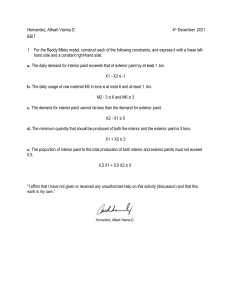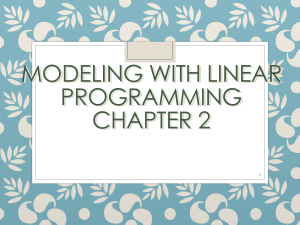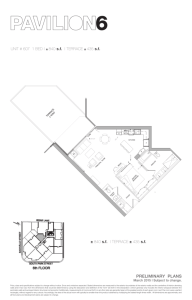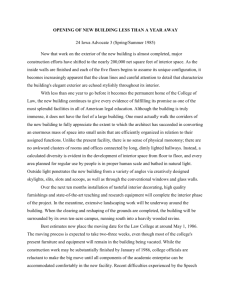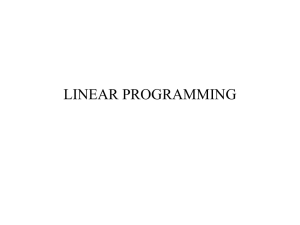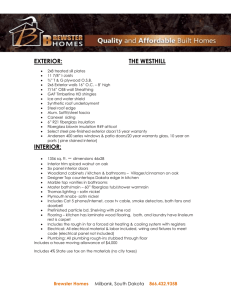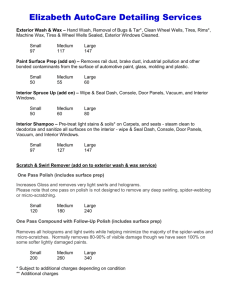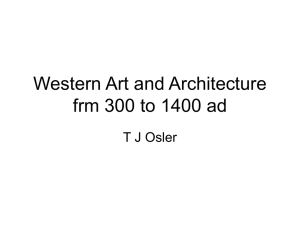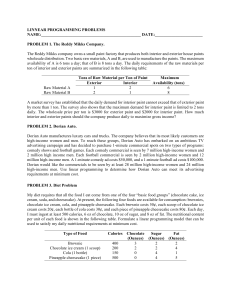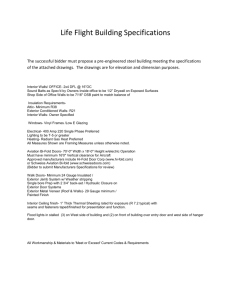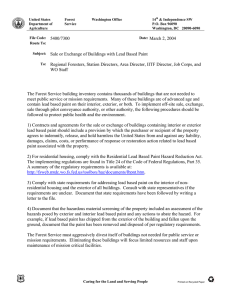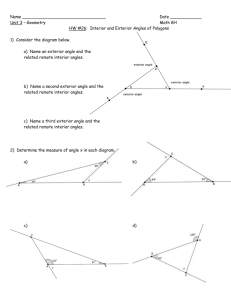ST 3100 - Loyola College
advertisement
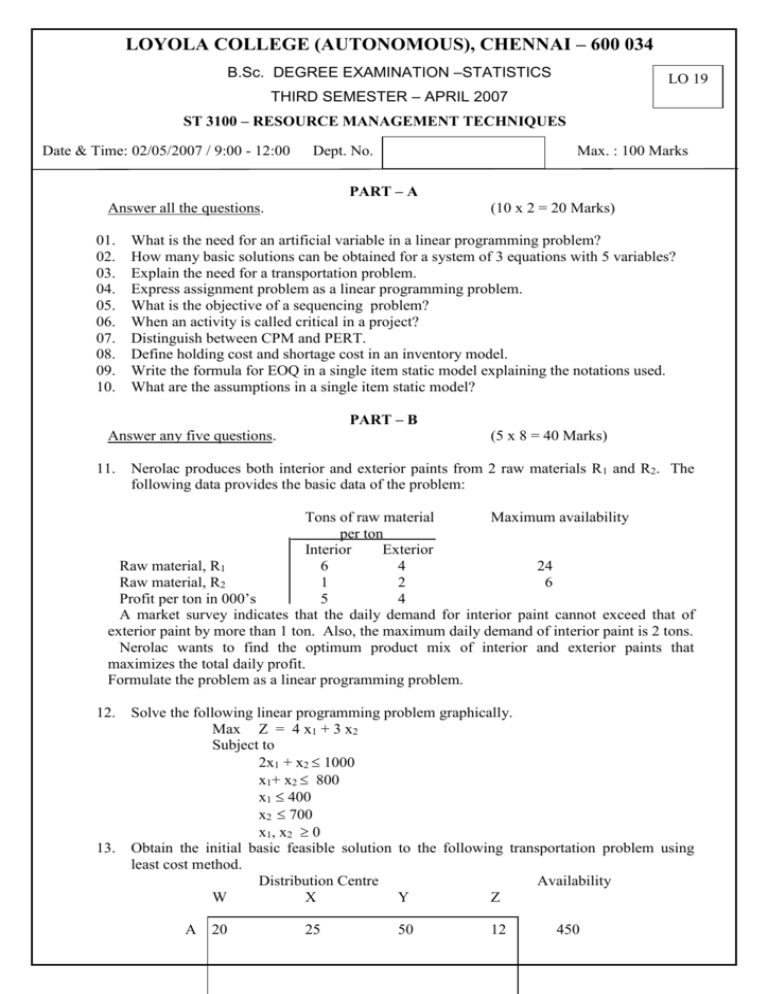
LOYOLA COLLEGE (AUTONOMOUS), CHENNAI – 600 034 B.Sc. DEGREE EXAMINATION –STATISTICS LO 19 THIRD SEMESTER – APRIL 2007 ST 3100 – RESOURCE MANAGEMENT TECHNIQUES Date & Time: 02/05/2007 / 9:00 - 12:00 Dept. No. Max. : 100 Marks PART – A Answer all the questions. 01. 02. 03. 04. 05. 06. 07. 08. 09. 10. (10 x 2 = 20 Marks) What is the need for an artificial variable in a linear programming problem? How many basic solutions can be obtained for a system of 3 equations with 5 variables? Explain the need for a transportation problem. Express assignment problem as a linear programming problem. What is the objective of a sequencing problem? When an activity is called critical in a project? Distinguish between CPM and PERT. Define holding cost and shortage cost in an inventory model. Write the formula for EOQ in a single item static model explaining the notations used. What are the assumptions in a single item static model? PART – B Answer any five questions. (5 x 8 = 40 Marks) 11. Nerolac produces both interior and exterior paints from 2 raw materials R1 and R2. The following data provides the basic data of the problem: Tons of raw material Maximum availability per ton Interior Exterior Raw material, R1 6 4 24 Raw material, R2 1 2 6 Profit per ton in 000’s 5 4 A market survey indicates that the daily demand for interior paint cannot exceed that of exterior paint by more than 1 ton. Also, the maximum daily demand of interior paint is 2 tons. Nerolac wants to find the optimum product mix of interior and exterior paints that maximizes the total daily profit. Formulate the problem as a linear programming problem. 12. Solve the following linear programming problem graphically. Max Z = 4 x1 + 3 x2 Subject to 2x1 + x2 1000 x1+ x2 800 x1 400 x2 700 x1, x2 0 13. Obtain the initial basic feasible solution to the following transportation problem using least cost method. Distribution Centre Availability W X Y Z A 20 25 50 12 450 Factory B 45 50 15 40 500 C 22 10 45 45 550 400 300 300 Requirement 500 14. Four operators are to be assigned to 4 jobs in a company. The time needed by the operators for the jobs are given below. How should the jobs be assigned so that the time is minimised? A Operators B C D I 15 13 14 17 II 11 12 15 13 III 18 12 10 11 IV 15 17 14 16 Jobs 15. A book binder has one printing press, one binding machine and the manuscripts of a number of different books. The time required to perform the printing and binding operations for each book are known. Determine the order in which the books should be processed in order to minmise the total time required to process all the books. Find also the total time required. Printing time Binding time 1 Processing time 2 3 4 5 40 50 90 60 50 40 80 20 60 30 16. Draw the network for the data given below and compute the critical path. Activity A B C D E F G H I Predecessor A B C D, E B H, F Time (weeks) 3 5 4 2 3 9 8 7 9 17. Find the optimum order quantity for a product for which the price breaks are as 2 follows Quantity Unit cost (Rs.) 0 y <500 10 500 y 9.25 The monthly demand for the product is 200 units, the cost of storage is 2% of the unit cost and the cost of ordering is Rs.350. 18. Discuss in detail the factors affecting inventory control. PART – C Answer any Two questions. (2 x 20 = 40 Marks) 19. Use simplex method to solve Max Z = 2x1 + 3x2 subject to x1 + x2 4, - x1 + x2 1, x1 + 2x2 5 x1, x2 0 20. A company has 3 factors A, B, C and four distributors W, X, Y and Z. The monthly production capacity and demand for the distribution centers and the unit transportation costs are given below. Distribution center Availability Factory W X Y Z A 20 25 50 10 4500 B 45 50 15 40 5000 C 22 10 45 35 5500 5000 4000 3000 3000 Demand 21. A project consists of activities A, B, C, _ _ _ _ H, I. Construct the network diagram for the following constraints. A < D; A < E; B < F; C < G; D < H: E, F < I The project has the following time estimates (in days). Task A B C D E F G H I Optimistic time 5 18 26 16 15 6 7 7 3 Pessimistic time 10 22 40 20 25 12 12 9 5 Most likely time 8 20 33 18 20 9 10 8 4 Obtain the expected times and their variances. Also obtain the critical path and total float, free float for the activities. 22. a) Explain a single item static model with no shortages in detail. b) An oil manufacturer purchases lubricants at the rate of Rs.42 per piece from a vendor. The requirement of these lubricants is 1800 per year. What should be the order quantity per order, if the cost per placement of an order is Rs.16 and inventory carrying charge per piece per year is only 20 paise? 3
